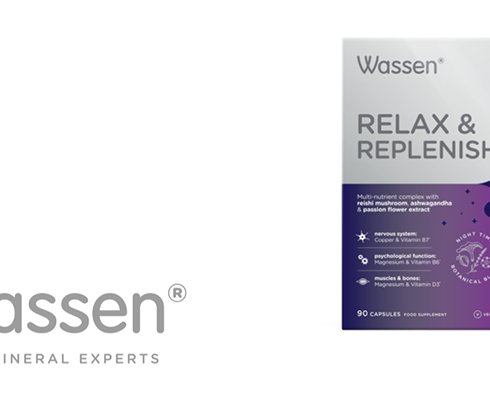The Truth About Drinking Water Quality: Is Your Tap Water Really Safe?
In recent years, the quality of drinking water has become a growing concern worldwide, with increasing awareness about the contaminants present in both tap water and bottled water. While tap water is often promoted as a safe and cost-effective alternative to bottled water, the reality of what flows from our taps is more complex than we might think. In places like the UK and the US, recent studies have shown that water quality is declining, bringing with it potential health risks, especially for vulnerable individuals, such as those undergoing medical treatments like cancer therapy.
The Decline in Tap Water Quality
It is widely assumed that tap water undergoes rigorous treatment processes to ensure it is safe to drink, but the truth is, contaminants still find their way into our water supplies. In the UK, for instance, recent reports have shown rising levels of contaminants like lead, chlorine, and pesticides in public water systems. The UK Drinking Water Inspectorate reported that in 2020, there were over 60,000 samples that failed to meet water quality standards. These contaminants, while regulated, can still pose long-term health risks, particularly for people with compromised immune systems.
In the US, the situation is even more alarming. The Environmental Working Group (EWG) conducted a study that found the tap water in all 50 states contained unsafe levels of cancer-linked contaminants like arsenic, hexavalent chromium, and lead. In fact, an estimated 80% of US households could be exposed to these harmful pollutants. This poses serious questions about the safety of relying solely on municipal water treatment plants to safeguard our health.
Hidden Dangers in Bottled Water
With concerns about tap water growing, many people turn to bottled water as a safer option. However, this solution has its own set of problems. Studies have shown that bottled water is not always free from contaminants, and some brands have even been found to be less safe than tap water. In fact, a 2018 investigation by Consumer Reports found that some bottled water brands contained microplastics, heavy metals, and bacteria levels that exceeded regulatory standards. Additionally, plastic water bottles can leach harmful chemicals like bisphenol A (BPA) into the water, especially when exposed to heat.
One of the main issues with bottled water is the lack of stringent oversight. While tap water is regulated by government agencies like the UK’s Drinking Water Inspectorate and the US Environmental Protection Agency (EPA), bottled water is considered a food product and regulated by different, less stringent standards. Moreover, the environmental impact of bottled water—both in terms of plastic waste and the carbon footprint of production and transportation—adds to its unsustainability.
Health Implications of Contaminated Water
The presence of contaminants in drinking water can have serious health implications, particularly over long-term exposure. For healthy individuals, low levels of chemicals like chlorine or fluoride may not pose immediate health threats, but for people with chronic illnesses, pregnant women, children, and the elderly, these substances can be harmful.
Patients undergoing cancer treatments, for instance, have compromised immune systems that make them more vulnerable to waterborne pathogens or toxins. Heavy metals like lead and arsenic, often found in tap water, are carcinogenic, and consuming them regularly can exacerbate health issues. Even microplastics in bottled water are thought to pose risks, as these tiny particles may accumulate in the body over time, potentially leading to inflammation and other complications.
Water Filtration Solutions: A Proactive Approach
Given these challenges, many people are turning to water filtration systems as a proactive solution to improve the quality of their drinking water. There are various types of filters available, each with its pros and cons. Common systems include:
- Carbon Filters: These are popular in pitchers or faucet attachments. They are effective at removing chlorine and improving taste, but they may not filter out heavy metals or bacteria.
- Reverse Osmosis (RO) Systems: RO filters are highly effective at removing a wide range of contaminants, including lead, arsenic, fluoride, and bacteria. However, they also remove healthy minerals, which can lead to “flat” tasting water.
- UV Purifiers: These systems use ultraviolet light to kill bacteria and viruses in water, but they do not remove chemical contaminants or heavy metals.
- Distillation Units: These systems boil water and then condense the steam, effectively removing contaminants, but they also strip water of its natural minerals.

AquaTru Classic Alkaline: A Standout Filtration System
One filtration system that has recently gained attention is the AquaTru Classic Alkaline, a reverse osmosis-based system that addresses the shortcomings of traditional RO filters. Unlike standard RO systems, which remove all minerals from water, AquaTru Classic Alkaline adds healthy minerals back during the final stage of filtration, resulting in pure, mineral-rich, alkaline drinking water.
The AquaTru Classic Alkaline features a 4-stage filtration process that includes:
- Sediment Filter: Removes dirt, rust, and other large particles.
- Pre-Carbon Filter: Targets chlorine, volatile organic compounds (VOCs), and odors.
- Reverse Osmosis Membrane: Removes up to 99% of contaminants, including heavy metals, fluoride, and bacteria.
- Post-Carbon VOC Filter with pH+ Mineral Boost: Adds beneficial minerals like magnesium and calcium, alkalizing the water and improving its taste.
The AquaTru Classic Alkaline is not only efficient but also user-friendly. After a simple installation, it filters 2.7 liters of water in just 12-15 minutes. Its compact design makes it suitable for kitchen countertops, office desks, or even medical practice rooms. Made from durable Tritan® plastic, the system is free of harmful chemicals like bisphenol A (BPA) and does not leach microplastics into the water.
Why AquaTru Classic Alkaline Stands Out
One of the standout features of the AquaTru Classic Alkaline is its ability to remove a broad range of contaminants while also enhancing the water with essential minerals. This is especially beneficial for individuals seeking not only pure water but also an alkaline balance, which some studies suggest can help neutralize acidity in the body and support overall health.
The filtered water is ideal for drinking, cooking, and even for filling metal water bottles, providing peace of mind that the water is both clean and enriched with minerals. We have found it particularly helpful in our household, not only for human consumption but also for pets, like our cats, who benefit from the purified water.
Conclusion
As concerns about the quality of both tap and bottled water grow, it’s essential to take proactive steps to ensure the water we consume is as safe and healthy as possible. Systems like the AquaTru Classic Alkaline offer an effective solution, providing clean, mineral-rich, and alkaline water. Its ease of use, rapid filtration, and compact design make it a worthwhile investment for health-conscious individuals, especially those with vulnerable health conditions.
In a world where water quality is increasingly compromised, having a reliable filtration system is not just a luxury—it’s a necessity for long-term health and wellness.
Photo by Bluewater Sweden on Unsplash














